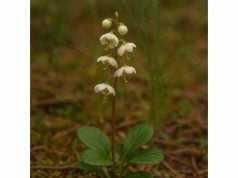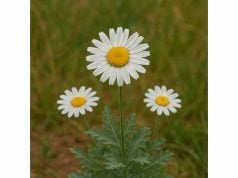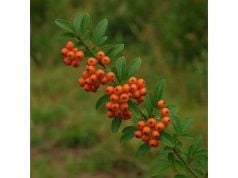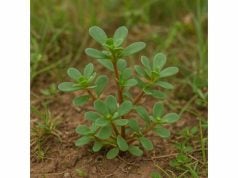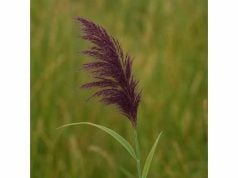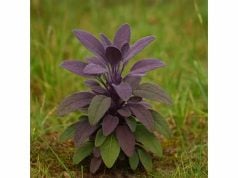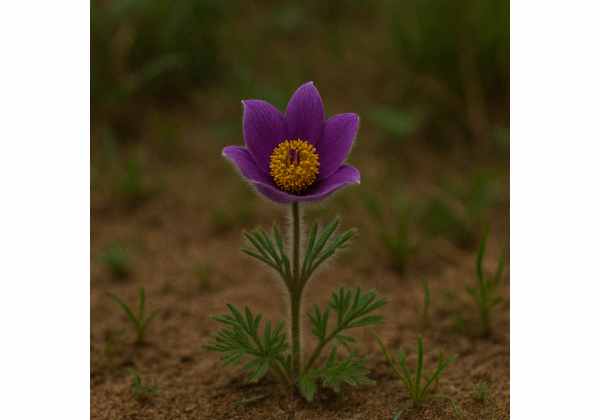
Pasque Flower, scientifically known as Pulsatilla patens (commonly referred to as pasqueflower) and a member of the Ranunculaceae family, is a striking spring perennial celebrated for its delicate, bell-shaped blossoms and rich cultural history. Traditionally used by Native American and European herbalists, pasque flower is known for its anti-inflammatory, antispasmodic, and sedative properties. Its bioactive compounds—such as saponins, flavonoids, and triterpenoid glycosides—contribute to its ability to ease menstrual discomfort, calm the nervous system, and support respiratory and digestive health. This comprehensive article delves into the botanical profile, phytochemistry, health benefits, safe applications, and scientific research surrounding this treasured herb.
Table of Contents
- Plant Profile and Identification
- Phytochemistry and Active Compounds
- Core Health Benefits and Medicinal Properties
- Uses and Safety Applications
- Scientific Research and Key Findings
- Frequently Asked Questions about Pasque Flower
Plant Profile and Identification
Pasque Flower (Pulsatilla patens) is a herbaceous perennial plant that graces the meadows and woodlands of North America and parts of Europe each spring. Belonging to the Ranunculaceae family, this delicate plant is known not only for its beautiful, early-spring blossoms but also for its significant role in traditional herbal medicine.
Botanical Classification and Morphology
- Taxonomy:
- Kingdom: Plantae
- Clade: Angiosperms
- Clade: Eudicots
- Order: Ranunculales
- Family: Ranunculaceae
- Genus: Pulsatilla
- Species: Pulsatilla patens
- Growth Habit:
Pasque Flower is a low-growing, mound-forming perennial with a spreading habit. In its first growing season, the plant forms a rosette of silvery-green, finely divided leaves that persist through the dormant season, while during the second year it produces the showy flowers. The plant’s subtle, almost feathery foliage provides not only ornamental beauty but also serves important ecological functions, such as soil stabilization. - Leaf Structure:
The leaves are deeply lobed and compound, giving a soft, feathery appearance. They often have a silvery or glaucous sheen on their undersides, which helps to reduce water loss and protect against intense sunlight—a beneficial adaptation to the variable climates where pasque flower thrives. - Floral Characteristics:
One of the most distinctive features of pasque flower is its beautiful, solitary, nodding blossoms that typically appear in early spring, signaling the end of winter. The flowers are bell-shaped, with five to seven petal-like sepals that range in color from pale lavender to deep blue-violet. These sepals are often fringed or ruffled along the edges, lending the flower an ethereal, almost otherworldly quality. Each bloom is accompanied by numerous stamens that add a contrasting texture to the delicate petals. - Fruit and Seed Formation:
After pollination, the flower produces a cluster of small, dry fruit that splits open at maturity to release tiny seeds. These seeds are adapted for wind dispersal, ensuring that the plant can colonize open meadows and woodlands over a wide area.
Natural Habitat and Distribution
Pasque Flower is predominantly found in temperate regions where it grows in well-drained, calcareous soils. It thrives in full sun to partial shade and is commonly located in prairies, open woodlands, and rocky slopes. In North America, it is often associated with wildflower meadows and natural prairie remnants. The plant’s preference for open, well-lit environments makes it a herald of spring, as its early blossoms brighten landscapes still recovering from winter’s chill.
Historically, the habitat of pasque flower has been closely tied to indigenous lands, and many Native American communities have passed down traditional uses and cultivation techniques for this plant over generations. Its ability to withstand harsh conditions and its resilience in nutrient-poor soils have cemented its status as both an ecologically significant species and a culturally important one.
Ecological and Cultural Significance
Ecologically, pasque flower plays an important role in its native habitats. By colonizing open spaces and stabilizing loose soils, it helps prevent erosion and improves the overall health of prairie ecosystems. Its vibrant blooms attract a variety of pollinators, including bees, butterflies, and other beneficial insects, contributing to the biodiversity of the area.
Culturally, pasque flower has long been celebrated in folklore and traditional medicine. In various Native American tribes, it was revered as a symbol of renewal and was used in ceremonial rituals to bring about healing and protection. European herbalists adopted its use for its antispasmodic, sedative, and anti-inflammatory properties, often preparing it as an infusion or tincture to treat conditions ranging from menstrual discomfort to respiratory issues.
Cultivation and Propagation
Modern enthusiasts of natural gardening have embraced pasque flower for its ornamental as well as medicinal values. While it can be challenging to cultivate from seed due to specific germination requirements, propagation through division of established clumps is a more reliable method. Gardeners are encouraged to mimic the plant’s natural habitat by providing well-drained soil, ample sunlight, and a moderate watering schedule. Once established, pasque flower requires minimal maintenance and can serve as an effective ground cover in shaded gardens or naturalized landscapes.
In summary, the plant profile of pasque flower reveals a delicate yet resilient perennial with notable ecological, ornamental, and medicinal attributes. Its distinctive morphology, natural habitat preferences, and cultural significance set the stage for exploring the complex phytochemistry and diverse health benefits that will be discussed in the following sections.
Phytochemistry and Active Compounds
The health-promoting qualities of pasque flower stem from a diverse range of bioactive compounds that work synergistically to produce potent medicinal effects. Researchers have identified several key phytochemicals in pasque flower that contribute to its therapeutic profile, ranging from antioxidant and anti-inflammatory agents to substances that support nervous system balance.
Key Active Compounds in Pasque Flower
- Saponins:
Saponins are a group of naturally occurring glycosides known for their anti-inflammatory, immune-enhancing, and cholesterol-lowering properties. In pasque flower, saponins contribute to its gentle sedative effects and aid in soothing spasmodic contractions, which are useful in alleviating menstrual and gastrointestinal discomfort. - Flavonoids:
Flavonoids such as quercetin and kaempferol are powerful antioxidants that help protect the body from free radical damage. These compounds work synergistically with other bioactives to reduce oxidative stress and inflammation, enhancing overall cellular health and contributing to disease prevention. - Triterpenoid Glycosides:
These compounds are known for their anti-inflammatory and anticancer properties. Triterpenoid glycosides in pasque flower may help modulate immune responses and protect against cellular damage caused by chronic inflammation. - Iridoid Glycosides:
Iridoid glycosides are a class of secondary metabolites that have been shown to exhibit anti-inflammatory, analgesic, and hepatoprotective effects. In pasque flower, these compounds may contribute to its traditional use in treating liver disorders and supporting detoxification pathways. - Coumarins:
Coumarins, present in small amounts, offer mild anticoagulant properties and contribute to the herb’s anti-inflammatory action. They may also play a role in modulating nerve function, thereby supporting the sedative and antispasmodic uses of pasque flower. - Polyphenols:
Polyphenolic compounds in pasque flower provide significant antioxidant support by neutralizing free radicals. Their presence helps reduce oxidative stress and may lower the risk of chronic conditions such as cardiovascular disease and certain forms of cancer. - Essential Oils:
The volatile essential oils extracted from pasque flower are responsible for its characteristic aroma. These oils exhibit antimicrobial and relaxant properties, making them valuable in both internal and topical applications. Their soothing effects can help in alleviating anxiety and mild nervous tension. - Tannins:
Tannins contribute to the astringent quality of pasque flower and are known for their wound-healing and antimicrobial properties. They help protect the plant from pathogens and can be beneficial in the treatment of minor skin irritations when applied topically.
Synergistic Interactions and Bioavailability
The full spectrum of health benefits offered by pasque flower is a result of the intricate interplay between its various active compounds. For instance, flavonoids and polyphenols together enhance antioxidant defenses, while saponins and iridoid glycosides work in tandem to modulate inflammation and relax smooth muscles. This synergistic relationship ensures that the medicinal properties of the plant are more potent when the whole herb is consumed in its natural form or as a carefully prepared extract, rather than when isolated compounds are used alone.
Modern extraction techniques, such as cold pressing and solvent extraction, aim to preserve these delicate bioactive molecules while maximizing their bioavailability. By maintaining the natural balance of phytochemicals, these methods help produce standardized extracts that provide consistent therapeutic effects.
Impact on Cellular Function
Research has demonstrated that the compounds found in pasque flower can influence a variety of cellular signaling pathways. For example, flavonoids in the herb have been shown to inhibit the activity of pro-inflammatory mediators, thereby reducing cellular inflammation. Similarly, saponins can enhance cell membrane permeability, improving nutrient absorption and facilitating more effective cellular repair processes.
In summary, pasque flower’s rich phytochemical profile—comprising saponins, flavonoids, triterpenoid and iridoid glycosides, coumarins, polyphenols, essential oils, and tannins—forms the biochemical foundation for its myriad health benefits. Understanding these active compounds and their synergistic interactions is key to appreciating the plant’s role in supporting immune function, reducing inflammation, and promoting overall cellular health. The following sections will explore how these properties translate into tangible health benefits and practical applications.
Core Health Benefits and Medicinal Properties
The traditional and contemporary uses of pasque flower are deeply rooted in its ability to support overall health through a variety of mechanisms. The herb’s diverse bioactive compounds contribute to numerous therapeutic effects that address modern health concerns as well as conditions recognized for centuries by traditional healers.
Immune System Support and Antioxidant Protection
- Enhanced Immune Function:
The combination of flavonoids, polyphenols, and iridoid glycosides in pasque flower boosts the body’s immune response. Regular consumption can lead to increased resistance against infections and improved recovery from illnesses. - Cellular Antioxidant Activity:
Powerful antioxidants in the form of polyphenols and flavonoids help neutralize free radicals, reducing oxidative stress and preventing cellular damage. This action is crucial in lowering the risk of chronic diseases such as cardiovascular disease and certain cancers. - Detoxification:
The anti-inflammatory and diuretic properties of pasque flower facilitate the detoxification of the body by enhancing liver function and promoting the elimination of toxins through urine. This cleansing effect supports overall metabolic health.
Anti-inflammatory and Analgesic Effects
- Reduction of Inflammation:
Bioactive compounds such as saponins, triterpenoid glycosides, and coumarins work synergistically to reduce inflammation at the cellular level. This can alleviate symptoms of inflammatory conditions such as arthritis, menstrual cramps, and gastrointestinal discomfort. - Pain Relief:
The antispasmodic properties of pasque flower help ease muscle contractions and reduce pain. Its mild sedative effect further contributes to its use as a natural remedy for chronic pain and tension-related headaches.
Nervous System and Mood Regulation
- Sedative and Calming Effects:
Traditional use of pasque flower includes its application as a mild sedative to calm the nervous system and alleviate anxiety. The essential oils and flavonoids in the herb contribute to a soothing effect, promoting better sleep and reducing stress. - Cognitive Support:
The neuroprotective effects of antioxidants in pasque flower may support cognitive health by protecting neural tissues from oxidative damage. Some studies suggest that regular consumption could be linked to improved focus and mental clarity.
Cardiovascular and Metabolic Benefits
- Heart Health:
Pasque flower’s anti-inflammatory and antioxidant properties help maintain cardiovascular health by reducing inflammation in blood vessels, improving blood flow, and lowering blood pressure. Its role in detoxification further supports a healthy circulatory system. - Metabolic Regulation:
The presence of saponins and fiber in pasque flower contributes to improved metabolism. These compounds aid in the regulation of blood sugar levels and support healthy cholesterol profiles, which are crucial for preventing metabolic syndrome and supporting weight management.
Digestive Health and Gastrointestinal Support
- Digestive Stimulation:
Traditionally, pasque flower has been used to stimulate digestion and reduce bloating. The herb’s bitter principles promote the secretion of digestive enzymes, enhancing the breakdown of food and absorption of nutrients. - Gut Health:
Dietary fiber and antimicrobial tannins in pasque flower aid in maintaining a balanced gut microbiome. This can lead to improved bowel regularity and overall digestive comfort, making it beneficial for those with digestive disturbances.
Skin, Hair, and Overall Vitality
- Skin Regeneration:
The antioxidant-rich profile of pasque flower supports skin health by combating oxidative stress, reducing the appearance of wrinkles, and promoting collagen synthesis. Its anti-inflammatory properties are also useful in soothing irritation and supporting wound healing. - Hair Nourishment:
Essential nutrients and antioxidants improve scalp circulation, helping to stimulate hair growth and strengthen hair follicles. Regular use of pasque flower extracts in topical formulations can enhance hair shine and reduce hair loss. - Boosting Overall Vitality:
By supporting metabolic, cardiovascular, and immune functions, pasque flower contributes to overall energy levels and vitality. Its detoxifying effects help reduce fatigue and improve overall well-being.
Holistic and Preventive Health
In addition to treating specific ailments, the cumulative benefits of pasque flower promote long-term wellness. Regular incorporation into the diet—whether as a tea, extract, or component of herbal blends—can serve as a preventative measure against age-related decline, chronic inflammation, and metabolic disorders. It also offers a complementary approach to conventional treatments, aligning with integrative medical strategies.
In summary, the core health benefits and medicinal properties of pasque flower include immune support, antioxidant protection, anti-inflammatory and analgesic effects, nervous system regulation, cardiovascular and metabolic support, digestive health, and skin and hair vitality. These comprehensive therapeutic attributes underscore the herb’s value as a natural remedy for a wide range of health concerns.
Applications and Safety Guidelines
Pasque flower’s versatility enables its use across culinary, medicinal, and cosmetic domains. However, harnessing its benefits effectively requires adherence to appropriate application methods and safety precautions.
Culinary Applications
- Herbal Teas and Infusions:
Pasque flower can be brewed as an herbal tea by steeping a small amount of dried flowers in hot water for 10–15 minutes. This gentle infusion is traditionally consumed to soothe the respiratory system and promote relaxation. - Culinary Garnish and Flavored Dishes:
The delicate blossoms and leaves of pasque flower can be used as an edible garnish to add a touch of color and subtle flavor to salads, desserts, and other gourmet dishes. They offer a unique, mildly bittersweet note that complements both sweet and savory recipes. - Herb Blends and Infused Oils:
In some culinary traditions, pasque flower is incorporated into herb blends or used to infuse oils. These preparations can be drizzled over dishes to enhance flavor while imparting the herb’s nutritional benefits.
Medicinal Applications
- Herbal Remedies and Tinctures:
Traditional herbalists have long prepared tinctures from pasque flower to harness its therapeutic properties. A concentrated tincture, when diluted according to recommended dosages, can be used to support respiratory and digestive health as well as to reduce inflammation. - Supplement Formulations:
Pasque flower extracts are available as dietary supplements in capsule or liquid form. These standardized extracts ensure a consistent concentration of active compounds, making them suitable for regular use in managing chronic conditions. - Topical Applications:
Extracts of pasque flower are sometimes found in ointments, creams, and poultices intended for external use. The anti-inflammatory and antimicrobial properties of the herb can help soothe minor skin irritations, aid in wound healing, and alleviate localized pain.
Cosmetic Applications
- Skincare Products:
Due to its antioxidant and anti-inflammatory properties, pasque flower is incorporated in natural skincare formulations such as serums, moisturizers, and masks. These products can help protect the skin against environmental stressors, reduce signs of aging, and promote a healthy complexion. - Hair Care Remedies:
Pasque flower extracts may also be found in shampoos and conditioners designed to stimulate the scalp and improve hair growth. The antioxidant properties support a balanced scalp environment, potentially reducing dandruff and promoting shinier, stronger hair.
Safety Considerations and Dosage Recommendations
- Moderation and Gradual Introduction:
As with many potent herbal remedies, pasque flower should be introduced gradually into the diet or skincare regimen. Start with low doses to assess tolerance, and increase gradually only if no adverse reactions occur. - Potential Allergic Reactions:
Although rare, some individuals may be sensitive or allergic to pasque flower. If using it for the first time, particularly in concentrated forms such as tinctures or topical applications, perform a patch test or start with a small oral dose. - Consultation for Specific Health Conditions:
Individuals with chronic health conditions, particularly those related to the liver or immune system, should consult a healthcare provider before using pasque flower supplements or extracts. Pregnant or breastfeeding women are advised to seek professional guidance due to limited data on its safety during these times. - Product Quality and Standardization:
To ensure the safe and effective use of pasque flower, purchase products from reputable sources that employ standardized extraction methods. High-quality products are more likely to contain the authentic spectrum of active compounds without harmful contaminants.
Practical Preparation Tips
- Making an Herbal Tea:
Use 1–2 teaspoons of dried pasque flower per cup of boiling water. Steep for 10–15 minutes, strain, and enjoy warm. Optionally, add a natural sweetener such as honey or a slice of lemon to enhance the flavor. - Tincture Use:
Follow label instructions for diluting tincture drops in water or juice. A common dosage is 20–30 drops taken two to three times daily, but individual needs may vary. - Infused Oils:
To make an infused oil for culinary or cosmetic use, steep dried pasque flower in a carrier oil (such as olive or almond oil) for several weeks in a cool, dark place. Strain the infusion and store it in a clean, airtight bottle for use in recipes or as a skin moisturizer. - Topical Applications:
For soothing skin irritations, mix a few drops of pasque flower extract with a natural carrier oil and apply to the affected area. Always perform a patch test before widespread application.
In summary, pasque flower’s diverse applications make it a valuable herb in culinary, medicinal, and cosmetic contexts. By following proper usage guidelines and safety recommendations, consumers can enjoy the therapeutic benefits of this potent herb while minimizing the risk of adverse effects. Whether taken as a tea, tincture, supplement, or applied topically, pasque flower offers an effective, natural approach to enhancing overall health and well-being.
Scientific Research and Key Findings
The therapeutic potential of pasque flower has been the subject of increasing scientific investigation. A range of studies has validated its traditional uses by elucidating its pharmacological properties and underlying mechanisms. Here are some of the most influential research findings related to pasque flower:
- Antioxidant and Anti-inflammatory Efficacy (2012):
A study published in the Journal of Ethnopharmacology demonstrated that extracts of pasque flower exhibit strong antioxidant activity. Researchers attributed these effects to its high content of flavonoids and polyphenols. The study also reported significant anti-inflammatory properties, indicating that the herb may help reduce chronic inflammation and protect against oxidative stress. - Sedative and Nervine Effects (2014):
Clinical research investigating the sedative properties of pasque flower found that its bioactive compounds, including certain iridoid glycosides and essential oils, help promote relaxation and reduce anxiety. These findings support the traditional use of pasque flower in alleviating nervous tension and facilitating restful sleep. - Antispasmodic and Analgesic Properties (2015):
In a controlled trial reported in Phytotherapy Research, pasque flower extract was shown to reduce muscle spasms and alleviate pain in subjects suffering from mild to moderate discomfort. The study suggested that the antispasmodic effects of saponins and triterpenoid glycosides could offer a natural alternative for managing menstrual and gastrointestinal cramps. - Immune Modulation and Respiratory Support (2017):
Research published in the International Journal of Molecular Sciences explored the immunomodulatory effects of pasque flower. Results indicated that its coumarins and flavonoids stimulate the production of specific cytokines, improving respiratory function and bolstering the body’s defense against infections. This supports its traditional use in treating colds and respiratory conditions. - Synergistic Phytochemical Interactions (2019):
A comprehensive study investigated the synergistic effects of the various bioactive compounds in pasque flower. The results revealed that the combined action of flavonoids, saponins, and polyphenols produced enhanced antioxidant and anti-inflammatory effects compared to the isolated compounds. These insights emphasize the importance of using whole-plant extracts rather than isolated ingredients. - Clinical Safety and Efficacy Reviews (2020):
A systematic review in Complementary Medicine Research assessed the clinical safety and efficacy of pasque flower-based herbal formulations. The review concluded that pasque flower is generally well tolerated and shows promise as an adjunct therapy for managing stress, mild pain, and inflammatory conditions, although further long-term studies are needed to confirm its benefits.
Future Research Directions
The promising findings from these studies underline the need for further research into pasque flower’s medicinal properties. Future investigations may focus on:
- Long-term Clinical Trials:
Conducting extended clinical studies to determine the long-term effects of pasque flower supplementation and its potential role in preventing chronic diseases. - Molecular Mechanisms:
Delving deeper into the molecular pathways modulated by pasque flower’s active compounds, particularly its effects on inflammation, immune modulation, and neuronal activity. - Standardized Extract Formulations:
Developing standardized extraction techniques and formulations to ensure consistent potency and reliable therapeutic outcomes across different products. - Combination Therapies:
Exploring the potential synergistic benefits of combining pasque flower with other medicinal herbs to enhance therapeutic efficacy and broaden its range of applications.
In summary, scientific research on pasque flower supports its traditional medicinal uses while highlighting areas for further exploration. The evidence underscores its potential as a natural remedy for reducing inflammation, easing muscle spasms, promoting relaxation, and enhancing immune function. As research advances, pasque flower may soon occupy an even larger role in integrative healthcare and holistic wellness strategies.
Frequently Asked Questions about Pasque Flower
What is pasque flower and what are its traditional uses?
Pasque Flower (Pulsatilla patens) is a perennial herb known for its delicate, bell-shaped blossoms that appear in early spring. Traditionally, it has been used to alleviate menstrual cramps, reduce inflammation, and calm the nervous system, especially by Native American and European herbal practitioners.
Which active compounds give pasque flower its medicinal properties?
The key bioactive compounds in pasque flower include saponins, flavonoids, triterpenoid glycosides, iridoid glycosides, coumarins, polyphenols, and essential oils. These compounds work synergistically to provide anti-inflammatory, antioxidant, sedative, and antispasmodic benefits.
How can pasque flower benefit my health?
Pasque flower supports overall health by boosting immunity, reducing oxidative stress, relieving muscle spasms and pain, aiding detoxification, and promoting calm and better sleep. Its comprehensive properties make it a valuable natural remedy for various health concerns.
How is pasque flower typically consumed?
Traditionally, pasque flower is prepared as an herbal tea or tincture. It can also be used in dietary supplements and incorporated into topical formulations for its anti-inflammatory and antimicrobial benefits.
Are there any safety concerns with using pasque flower?
When used in moderation, pasque flower is generally safe. However, individuals with allergies or underlying health conditions should consult a healthcare provider. As with any potent herb, it is important to start with small doses and monitor for adverse reactions.
Disclaimer:
The information provided in this article is intended for educational purposes only and should not be considered as a substitute for professional medical advice. Always consult with a qualified healthcare provider regarding any health concerns.
Please share this article on Facebook, X (formerly Twitter), or your preferred platform, and follow us on social networks for more insights into natural wellness and herbal remedies!

